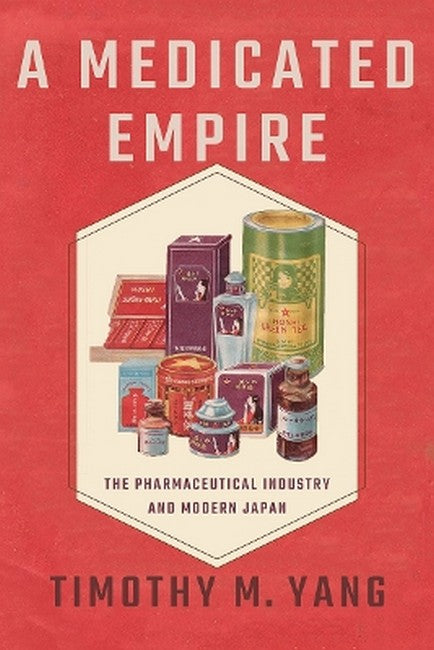Timothy M. Yang is Associate Professor of History at the University of Georgia.
Request Academic Copy
Please copy the ISBN for submitting review copy form
Description
Introduction Part I: THE DRUG INDUSTRY, ENTREPRENEURSHIP, AND THE STATE 1. A Strategic Industry 2. The Supposed Self-Made Man and His Company Part II: MARKETING MEDICINES AND MEDICINAL INFRASTRUCTURES 3. Marketing a Culture of Self-Medication 4. Medicinal Infrastructures and Medical Missionaries Part III: THE OPIUM EMPIRE 5. The Scandal of Opium (and the Colonial Exception) 6. Things Fall Apart Part 1V: SCIENCE, SELF-SUFFICIENCY, AND WARTIME MOBILIZATION 7. Selling the Science of Quinine Self-Sufficiency 8. War and Drugs Epilogue
Drawing from the archives of Hoshi Pharmaceuticals, Yang has written a thought-provoking history of the pharmaceutical industry in Japan. This important and readable book provides insights into the history of not only Japan but the modern world. (Choice) A Medicated Empire provides an important addition to our knowledge of the so-called self-made men of the Meiji period. (Pacific Affairs) A Medicated Empire is a significant addition to the scholarship in modern Japanese history and the history of the Japanese Empire. Yang's work is also pioneering in the history of medicine in Japan, since scholars have tended to focus on doctors and governmental medical policy while paying little attention to the pharmaceutical industry. (East Asian Science, Technology, and Society) Beautifully written and packed with insights that remain relevant for today, A Medicated Empire seamlessly weaves together the global histories of drugs, capitalism, and imperialism. The book is essential reading for scholars of modern Japan and the history of science and medicine. Business students may also find Hoshi an instructive case of the dangers of overextension, reputational damage, and the failure to plan for corporate succession. (European Journal for the History of Medicine and Health) Yang's work is important in understanding the extent to which companies acted as agents of modernity and imperial expansion. Given the attention that the pharmaceutical industry has received over the past few years, this book comes at an important time. (Business History Review) Yang's exciting and innovative text looks at how Hoshi Pharmaceuticals and the consumer medicine industry created a disciplined citizenry capable of monitoring its own health through over-the-counter drugs. The production of a populace that could manage its own health gave individuals the impression of autonomy, even as it further enmeshed them in the state's promotion of capitalist development. In this fashion, a focus on Hoshi allows Yang to connect histories of biopolitics and social control with histories of consumption and capitalism. (Journal of Asian Studies) In an era when big pharma is frequently the subject of news media, either as a panacea for or a catalyst of epidemics, Timothy M. Yang's book, A Medicated Empire: The Pharmaceutical Industry and Modern Japan, is a welcome reminder that the connections between the industry and the state, which relies upon and benefits from the industry's workings, are nearly as old as the nations the industry undergirds. (Journal of Japanese Studies)

